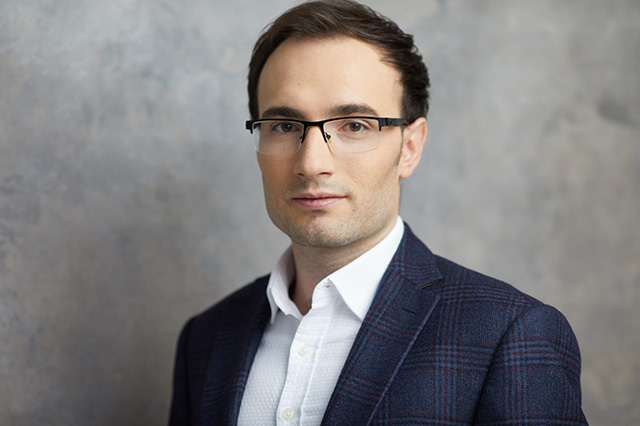
Expert: New Developments Could Transform Cancer Treatment Approaches, Ensuring Accessibility Is Key
Expert: New Developments Could Transform Cancer Treatment Approaches, Ensuring Accessibility Is Key
Tashkent, Uzbekistan (UzDaily.com) — Cancer remains one of the major public health challenges today. According to the World Health Organization, approximately one in five people worldwide will face cancer during their lifetime. In Uzbekistan, this issue is equally pressing, with over 35,000 new cancer cases diagnosed annually.
UzDaily spoke with Alexey Teteryuk, representative of the international biopharmaceutical company AstraZeneca, operating in Uzbekistan, about scientific advances in the fight against cancer and the accessibility of modern oncology care, ahead of the V Congress of Oncologists and Radiologists of Uzbekistan.

How prevalent is cancer globally, and is this number expected to rise?
Official statistics show that as life expectancy increases, the burden of cancer grows. In 2020, 19.3 million new cancer cases were diagnosed globally, with 10 million deaths attributed to the disease.
By 2040, the number of new cancer cases worldwide may reach 28–29.5 million annually, with deaths rising to 16.3 million. The five most common cancers are breast cancer, lung cancer, colorectal cancer, prostate cancer, and stomach cancer. In Uzbekistan, the World Health Organization estimates that cancer cases could increase by 71% by 2045, reaching 61,000.
At the same time, advances in science and medicine are gradually transforming cancer from a fatal diagnosis to a manageable chronic condition. Researchers are moving closer to the goal of making cancer a long-term treatable disease.
Which global oncology developments are the most promising?
Currently, the most breakthrough solutions are in the field of personalized medicine, which involves not only developing drugs but also creating comprehensive, individualized solutions for each patient—including diagnosis, treatment, and real-time monitoring.
Regarding therapies specifically, immunotherapy, antibody-drug conjugates, cell-based technologies, and gene therapy are among the most promising. Immunotherapy, hailed as one of the major discoveries of the 21st century, activates the immune system to recognize and destroy cancer cells that previously could “hide” from detection. CAR-T cell therapy, being developed in several countries, teaches a patient’s T-cells to identify and eliminate cancer autonomously. These approaches mark a significant milestone in oncology.
Equally important is the role of diagnostics in determining the specific mutations present in each patient. Modern medicine allows for precise and effective therapy tailored to the disease type, but this requires identifying the mutation within the tumor itself. Molecular genetic testing is one such method, and its development is relevant for Uzbekistan as well. Expanding access to these diagnostic tools is therefore a priority.
Another critical factor is ensuring that innovative therapies are accessible to all patients. Developing new treatments takes years, substantial investment, and the work of large teams. It is essential that breakthroughs with the potential to improve patient outcomes are made widely available.
What efforts is AstraZeneca making in the fight against cancer?
AstraZeneca is a global leader in oncology, focusing on developing new approaches to cancer therapy. The company leverages the latest scientific advances to understand the nature of cancer and create innovative medicines that improve patients’ lives worldwide.
In Uzbekistan, AstraZeneca is introducing original innovative drugs for treating reproductive system tumors, including breast and prostate cancer, as well as medications for hematologic malignancies. The company aims to make these therapies more accessible. Effective implementation also relies on educating medical professionals. AstraZeneca supports scientific and educational events for local healthcare specialists and key events of the Uzbekistan Association of Oncologists, including the V Congress of Oncologists and Radiologists held on September 19–20 in Tashkent.
The company collaborates with the medical community in Uzbekistan to integrate international standards into practice and facilitate clinical knowledge exchange on major oncological conditions. In June 2025, AstraZeneca co-hosted a roundtable with representatives from Sweden and Uzbekistan to discuss improvements in diagnostics and expanding access to innovative therapies.
Which of AstraZeneca’s innovative cancer therapies are available in Uzbekistan?
AstraZeneca is developing a portfolio of targeted therapies and works to make them accessible to patients in Uzbekistan. Currently, two of the company’s drugs are registered in the country for the treatment of endometrial, breast, prostate, and ovarian cancers.
One of these drugs is included in Uzbekistan’s list of essential medicines, allowing patients to receive it through the state budget. AstraZeneca plans to expand inclusion of other therapies in various national drug lists, further improving accessibility.
What initiatives should Uzbekistan prioritize for cancer prevention?
Cancer prevention involves two key components. The first is national programs for screening, early detection, and regular health monitoring. Such initiatives are already being implemented in Uzbekistan, and the state’s actions in this area are welcomed.
The second component is early and mandatory molecular genetic testing for patients. This approach allows for targeted therapy selection and identification of hereditary mutations passed through families—for example, BRCA gene mutations that significantly increase the risk of breast, ovarian, prostate, and other cancers. Identifying such mutations enables categorization of individuals as high-risk, prompting closer monitoring. Should cancer develop, this approach facilitates early detection and effective treatment with modern methods, improving both life expectancy and quality of life for patients.